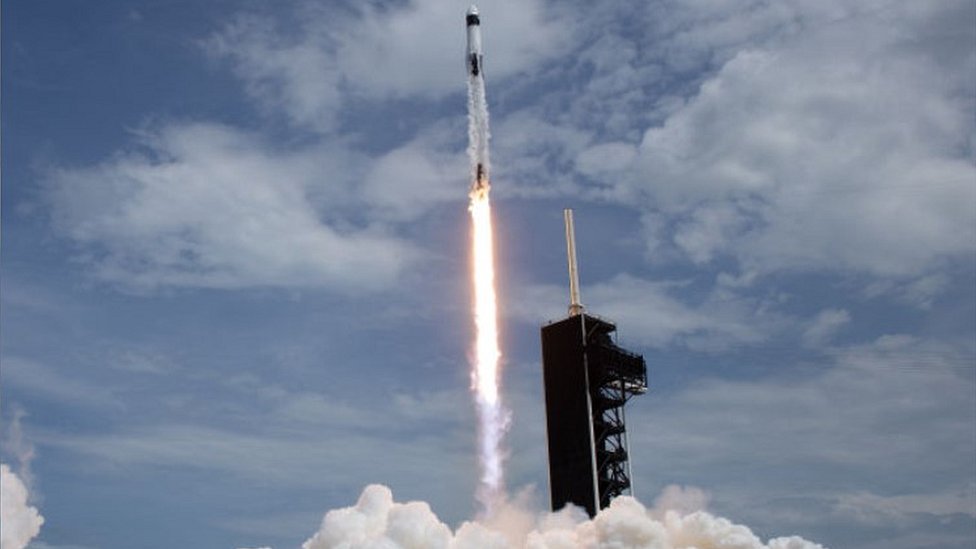
image copyrightGetty Images
The German government is studying a proposal from German industry to create a mobile launchpad for satellites in the North Sea.
Under the plan, small satellites weighing up to one tonne would be launched with German-built rockets.
No site has been chosen yet, but it would be in Germany’s economic zone.
The Federation of German Industries (BDI) is lobbying for the project, German media report. It would be a public-private partnership.
German media quote the BDI proposal as saying “a German launchpad is technically feasible and makes strategic and economic sense”.
Massive reliance on satellites in the digital economy – for new technologies like self-driving cars – makes space projects attractive for start-ups.
The German proposal involves three German start-ups, including Isar Aerospace in Ottobrunn, near Munich, which is developing two-stage 27m (89ft) rockets. It plans to start launching them next year.
One of the company’s advisers is Bulent Altan, a former vice president at SpaceX, the space services firm led by US tech billionaire Elon Musk.
The platform envisaged would not be designed for booster rockets of the sort used by the European Space Agency at its Kourou launch site in French Guiana. Rather, these would be “mini-rockets”.
The idea is for the German government to put in an initial investment of about €30m (£27m; $35m), after which, it is hoped, the North Sea launchpad would become commercially profitable.
German Economy Minister Peter Altmaier has spoken favourably about Germany developing its own space launch facility.
But German media say the BDI plan could cause political friction with European partners who are reported to have similar ambitions – for example the EU, Norway and Sweden.
Read MoreFeedzy


